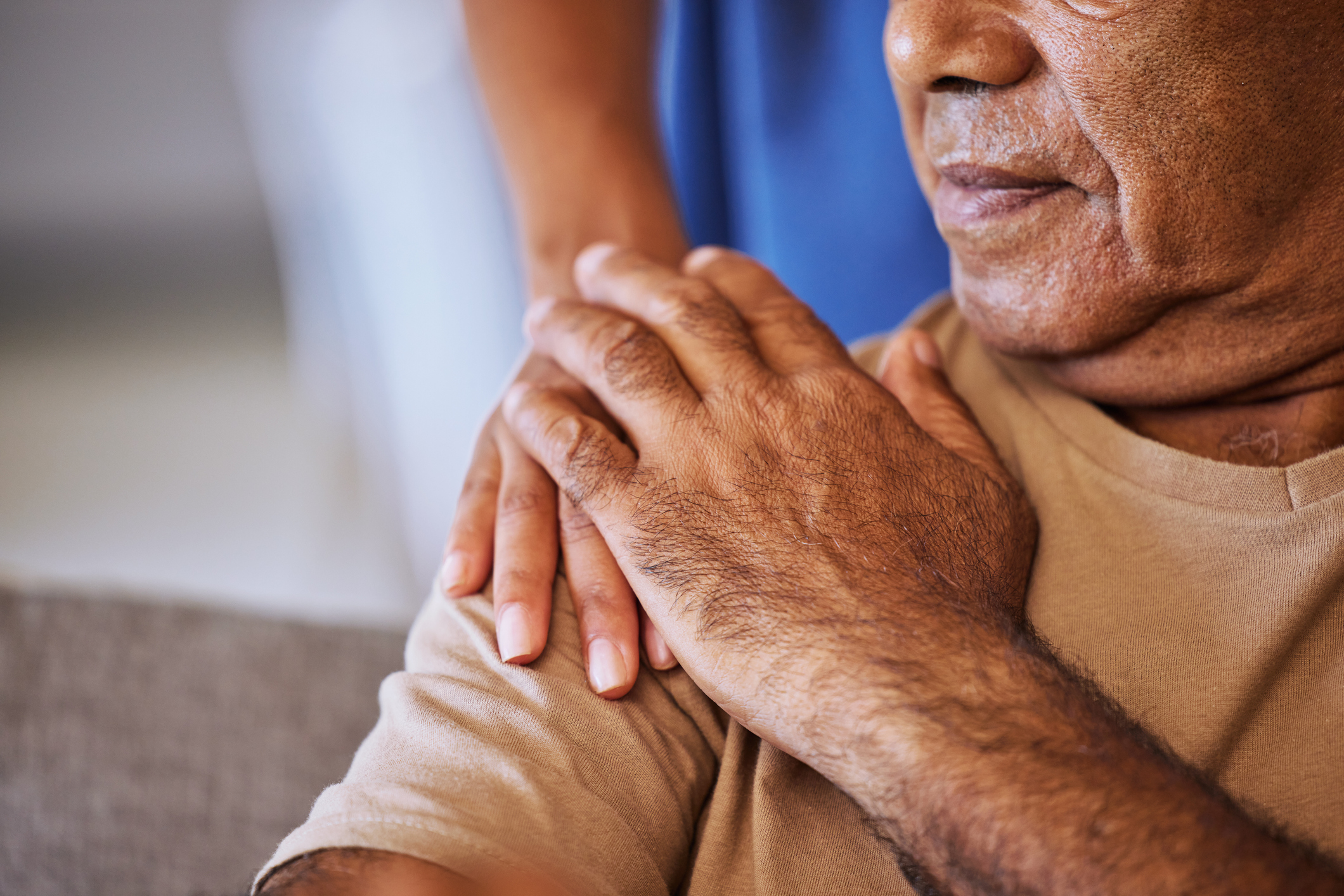Supporting Your Dying Grandfather: Signs, Stages, And Comfort
Watching a loved one, especially a grandfather, approach the end of their life is, very often, one of the most profoundly challenging experiences we face. The thought of a dying grandfather can bring a mix of emotions, from deep sadness to a desire to provide comfort and support during their final days. It's a time that asks much of us, both emotionally and practically, and honestly, knowing what to expect can make a real difference.
Death is, after all, the final stage of life, and it will eventually lead to death for everyone. Yet, how this journey unfolds is a very individual experience, too. For some people, the dying process may last weeks, offering a period for goodbyes and reflection. For others, it might be a much shorter time, perhaps just a few days or even hours, which can feel quite sudden.
Understanding what happens to a body in the months, weeks, and hours before death can, in some respects, help ease some of the uncertainty. This article will walk you through the stages of dying and the signs of death. This way, you know what to do if you’re in the presence of someone dying and what to do after a loved one passes, offering a bit of clarity when you need it most.
- Mary Cosby Net Worth
- Is Dr Guptas Wife A Doctor
- Tim Duncan Amy Sherrill
- Snowbunnyjelly Real Name
- Kerri Medders Age
Table of Contents
- Understanding the Journey of a Dying Grandfather
- Key Signs a Grandfather is Nearing the End
- The Stages of Dying: What to Expect
- Providing Comfort and Support for Your Grandfather
- Frequently Asked Questions (FAQ)
Understanding the Journey of a Dying Grandfather
Dying is the final stage of life, a path that ultimately leads to death. It's an individual experience, too, meaning no two people will go through it in exactly the same way. This journey can be quite different for everyone involved, so understanding this is, you know, pretty important.
For some people, the dying process may, surprisingly, last weeks. This gives families a longer period to spend time together, share memories, and prepare for what's coming. For others, it may last only a few days or even just hours, which can feel very sudden and leave little time for goodbyes.
Learning what happens to a body in the months, weeks, and hours before death can, in a way, provide a sense of calm. This knowledge helps you know what to do if you’re in the presence of someone dying and what to do after a loved one has passed. It's about being as ready as you can be for something that is, after all, a natural part of life.
- Longest Snapchat Streak In The World
- Sanaa Lathan And Husband
- Pasabist Age
- Funny Medical Quotes
- Am Done Quotes
Key Signs a Grandfather is Nearing the End
Recognizing the stages of the dying process can bring a bit of comfort and clarity during this challenging time. There are, actually, several signs a person is close to dying that families often observe. These signs are the body’s way of gradually preparing for the end.
This article explores, in a way, 11 signs that death is approaching, helping you understand what to look for. These are, basically, common changes that happen as the body slows down. Knowing them can help you feel a little more prepared.
Physical Changes You Might Observe
As a person nears the end, their body starts to conserve energy, and this leads to several noticeable physical changes. These are, you know, pretty typical indicators that things are progressing. You might see a few of these, or perhaps most of them, as time goes on.
- Decreased Appetite: One of the first things you might notice is a significant drop in how much your grandfather wants to eat or drink. Their body simply doesn't need as much fuel anymore, so they might refuse food or only take tiny sips of liquid.
- Weakness: There's a general, progressive weakness that sets in. Your grandfather might become too weak to move much, lift their head, or even hold a cup. This is, in some respects, the body shutting down.
- Increased Sleeping: They will likely spend much more time asleep, perhaps drifting in and out of consciousness. It’s almost as if they are resting more and more, conserving every bit of energy.
- Vital Sign Changes: Their body’s vital signs, like blood pressure, heart rate, and breathing, will often change. Blood pressure might drop, and their heart rate could become irregular or very faint. This is a sign that the body’s systems are slowing down, which is quite common.
These signs, among others, indicate that the body is gradually declining as it prepares for the end of life. It’s, in a way, a natural progression that is often observed.
Changes in Breathing Patterns
Breathing patterns can change quite a bit as someone nears the end of life, and this can be distressing to witness if you’re not expecting it. Unconscious people’s breathing follows automatic patterns generated by the respiratory center in the brain stem. This means they are not consciously controlling their breaths.
Because they’re unaware of their mouth and throat, dying people may breathe in ways that sound different. You might hear gurgling sounds, sometimes called a "death rattle," which is simply fluid collecting in the throat. Their breathing might also become very shallow, with long pauses between breaths, or it could be irregular, speeding up and then slowing down. This is, you know, a pretty common part of the process.
The Stages of Dying: What to Expect
Understanding the stages of dying can, quite frankly, help you feel more prepared and less scared. Learning about what to expect can, in a way, provide comfort to your loved ones during the final days of life. It’s about recognizing the process and finding ways to be present and supportive.
This knowledge helps you know what to do if you’re in the presence of someone dying. It also helps you understand what to do after a loved one has passed, offering a kind of roadmap for a very difficult time. Knowing these stages can help you manage your own emotions, too.
The Initial Decline
During the first stage, the body gradually declines as it prepares for the end. This can be a slow, subtle process that unfolds over weeks or even months. You might notice your grandfather becoming less active, sleeping more, and showing less interest in food or hobbies they once enjoyed. This phase is, you know, about the body conserving its energy.
It’s a time when many families begin to recognize that things are changing, and that the person is, in some respects, moving towards a different phase of life. This initial decline is often about a general slowing down of all bodily functions. It’s a very natural part of the journey.
Active Dying: The Final Days
Active dying occurs over the course of several days, and patients and their loved ones need time to process this. This is when the changes become more pronounced and continuous. You'll see more significant shifts in breathing, consciousness, and physical responses, which can be pretty intense to witness.
Below are the stages, signs, symptoms, timeline, and details on what to expect during this very final phase. It’s a period where the body is truly letting go, and comfort becomes the main focus. This is, you know, a very sacred time for families to be together and offer peace.
Providing Comfort and Support for Your Grandfather
Knowing what to do if you’re in the presence of someone dying can make a significant difference, not just for them, but for you, too. Your presence and comfort are, quite frankly, invaluable during this time. It’s about being there, offering a sense of peace, and showing your love.
Here are some ways you can provide comfort and support:
- Create a Peaceful Environment: Keep the room calm and quiet. Soft lighting, gentle music, or even just silence can be very soothing. It’s about making the space feel safe and comfortable.
- Offer Small Sips of Water: If they can swallow, offer small sips of water or ice chips. Sometimes, moistening their lips with a damp cloth can also bring comfort, as they might feel very dry.
- Speak Gently and Clearly: Even if they seem unresponsive, hearing is often the last sense to go. Speak gently, tell them you love them, share memories, and let them know it’s okay to rest. Your voice can be a real comfort.
- Offer Gentle Touch: Holding their hand, stroking their forehead, or offering a gentle touch can be incredibly reassuring. Physical touch can convey love and presence when words are difficult.
- Allow for Rest: Let them rest without interruption. They will be sleeping a lot, and these periods of rest are important for them. It's almost like their body is doing its final work.
- Manage Visitors: Encourage family to visit, but in short, manageable bursts. Too many people or too much noise can be overwhelming. It’s about quality time, not quantity, really.
- Consider Hospice Care: Hospice care provides professional support for both the dying person and their family. They can help manage pain, provide emotional support, and guide you through the process. It’s a truly valuable resource.
It’s about creating a peaceful environment and being present. This period is, after all, about love and connection, and supporting your grandfather through his final journey. Learn more about end-of-life care on our site. You can also find support for grief and loss.
For more resources on end-of-life care and supporting loved ones, you might find helpful information at Hospice Foundation of America. They offer, you know, a lot of good guidance during these very difficult times.
Frequently Asked Questions (FAQ)
Q1: How long does the dying process typically last for a grandfather?
A1: The dying process is very individual, too. For some, it may last weeks, with a gradual decline. For others, it might be a much shorter period, perhaps just a few days or even hours. It really depends on the person and their health condition, you know.
Q2: What are the most common signs that a grandfather is actively dying?
A2: Common signs during active dying include significantly decreased appetite, increased sleeping, noticeable weakness, and changes in breathing patterns, like shallow breaths or gurgling sounds. Vital signs, such as blood pressure and heart rate, will also typically change.
Q3: How can I best support my dying grandfather and my family during this time?
A3: Providing comfort is key. This means creating a peaceful environment, offering gentle touch, speaking softly, and allowing them to rest. Supporting your family involves open communication, sharing memories, and seeking professional help like hospice care if needed. It’s, in a way, about being present and loving.
- Pasabist Age
- Is Taylor Kitsch Gay
- Has Anyone Died On The Show Alone
- Sukihana Height
- Red Head Characters

What to do when someone is dying | Reader's Digest Australia
/coping-with-death-process-rbhc_71-resized-56a274a15f9b58b7d0cab9bb.jpg)
How to Recognize When Your Loved One Is Dying

The Dying Process - Palliative Care Australia